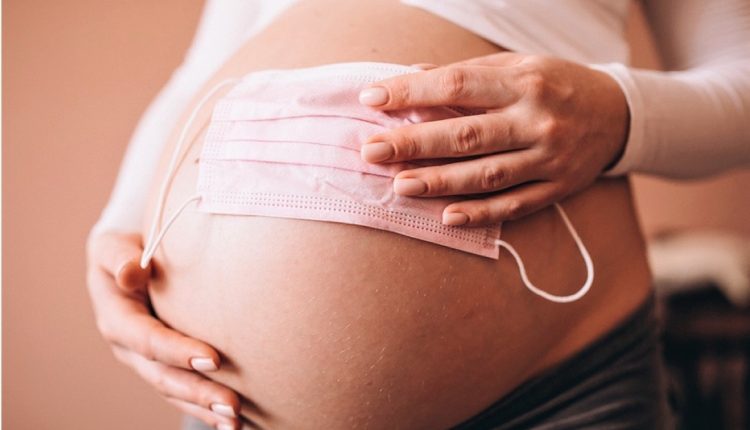
Covid, gynaecologist: 'Third dose recommended for pregnant women. Lymph nodes and cycle? Transient alterations"
Third dose in pregnancy: ‘It is well known that vaccination against the Sars-Cov-2 virus in pregnancy, given the number of pregnant women vaccinated worldwide, does not have any effects that would make it contraindicated, indeed it is recommended. Regarding the administration of the third dose of vaccine during pregnancy, defined as booster, the international societies, the Centers for Disease Control and Prevention (CDC) with a statement of 21 October and the American College of Obstetricians and Gynecologists (ACOG) with an updated guide issued on 3 November, have declared themselves in favour
This was stated by Anna Franca Cavaliere, director of the Complex Operational Unit of Gynaecology and Obstetrics of the Santo Stefano di Prato Hospital – Tuscan Health Centre and lecturer at the Catholic University of the Sacred Heart in Rome.
Third dose for pregnant women: rules to follow
The specialist also explains that ‘Acog recommends administering the booster dose six months after the second dose if you have received an mRNA vaccine and two months after receiving a depotentiated virus vaccine, specifically J&J.
Regarding the indicated dose for booster vaccination,” adds Cavaliere, “there is a full dose in the case of Pfizer or J&J, and Acog suggests half a dose in the case of Moderna.
This kind of recommendation about the third dose,” she further specifies, “includes not only women who are pregnant, but also those who have given birth six weeks ago.
Third dose of vaccine: regarding the period of pregnancy, follow the recommendations issued for the first and second dose
“The ministerial circular does not contraindicate vaccination in the first trimester and recommends it in the second and third trimesters, but suggests assessing the risk-benefit ratio of administration in the first three months of pregnancy with your doctor.
The reason for this precaution,” explains the expert, “is related to the possible rise in fever that may be caused by vaccination.
It is known that hyperthermia, if significant and prolonged, is a risk factor for embryo-fetal development in these phases of organogenesis,” she explains.
However, this type of temperature rise can be easily controlled with safe medication during pregnancy, whereas a high fever with other associated symptoms in the event of contracting the virus would be much more difficult to treat.
It is therefore obvious that the choice can only be in favour of vaccination, which should be done as soon as possible.
Regarding the doubts surrounding the administration of the booster dose of vaccine to pregnant women, the gynaecologist explains: ‘We know that a pregnant woman who develops Covid-19 disease has a three times higher risk of admission to intensive care and a higher risk of mortality than a woman of the same age and condition who is not pregnant.
Pregnancy is therefore a risk factor in itself for Covid’s disease.
In addition, Covid’s disease can also compromise the physiology of fetal life in utero, especially in terms of preterm birth, she continues.
Boosting the mother’s antibody level again and reducing the risk of severe disease, therefore, also protects the foetus.
Moreover, if the mother has a sufficient number of antibodies,” concludes Cavaliere, “she can transmit them to the foetus through the umbilical cord and the placenta, through the effect of so-called passive immunisation.
With the third dose, pregnant and non-pregnant women may experience a rise in temperature, joint pain and reactivity of axillary lymph nodes
“The main symptoms recorded following the third dose of the Covid-19 vaccine are a short-lived rise in temperature and joint pain.
We cannot exclude the possibility of reactivity in the axillary lymph nodes or a transient alteration of the menstrual cycle.
However, it is important for patients to bear in mind that these are transitory symptoms,” says Anna Franca Cavaliere.
The gynaecologist points out that “we are seeing a new increase in cases of Sars-Cov-2 and positive patients requiring hospitalisation, although we are not in the condition of previous waves.
Faced with the choice between having a reaction related to vaccination or risking contracting the virus and then manifesting the disease, I think there are more benefits in opting for immunisation, and a possible related symptom, rather than risking a disease as compromising as Covid is”.
As for any gastrointestinal problems as a result of the vaccine, Cavaliere points out that ‘these problems are also transitory and I think we are all capable of managing them.
It may also be useful to consult your family doctor to assess the use of milk enzymes or specific drugs and the adoption of a more controlled diet in the hours before vaccination to manage this possible symptomatology without major consequences and compromises or limitations,” he concludes.
Read Also:
US CDC Researchers Study: ‘No Increased Risk Of Miscarriage For Pregnant Women With Covid Vaccine’
Breastfeeding In Case Of COVID-19 Positivity
WHO Urges Those Who Are Pregnant Or Breastfeeding To Get COVID-19 Vaccine



